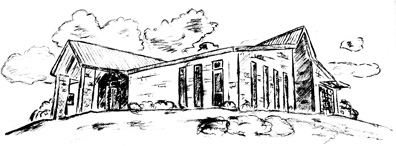History of the Bible Church
- The Apostolic Church
- Formed on the Day of Pentecost (Acts 2).
- Organized into local fellowships for instruction, edification, and promotion of the gospel.
- Gifted for service.
- Each was completely independent and autonomous.
- Each was shepherded by a number of men called variously elders, pastors, bishops, presbyters, and deacons.
- The Roman Catholic Church
- The main pastor came to be called the “Bishop” and the others “Presbyters.”
- Gradually the jurisdiction of this main Bishop came to include neighboring towns.
- By 325 AD an ecclesiastical hierarchy had developed with its center in Rome.
- Under Emperor Constantine the Church and State were united.
- Membership in the church became compulsory and religious freedom ended.
- A pagan element entered the church through this system.
- Dissenters were severely persecuted (Waldenses, Huguenots, and others).
- The church became corrupt.
- The Reformation Church.
- Widespread clamor for reform of the Roman Church came early in the 15th century.
- John Huss and John Wycliffe were among the first advocates of reform.
- The Reformation movement itself began with Martin Luther, John Calvin, and Ulrich Zwingli.
- Denominations had their origin as followers of these great men organized around their leaders (Lutherans followed Martin Luther, Presbyterians—John Calvin, etc.).
- Baptists seem to have come from Menno Simons and the Anabaptists. The Methodist Church came much later in 1791 following the death of John Wesley.
It is important to note that denominationalism did not come into being until almost 1500 years after the death of Christ. Before that time there was a period of Catholic domination preceded by a period of 300 years that was characterized by free and independent Bible-believing churches. Denominationalism then, is of fairly recent origin, being only about 400 years old.
- The Bible Church
- Historically antedates the denominational church.
- Therefore has a definite place in the history of the Christian Church.
- Is completely independent and autonomous.
- Patterned after the Apostolic Church.
- Traces its roots to the pre-Reformation era.
- Stands in the historic tradition of the Christian Church.
